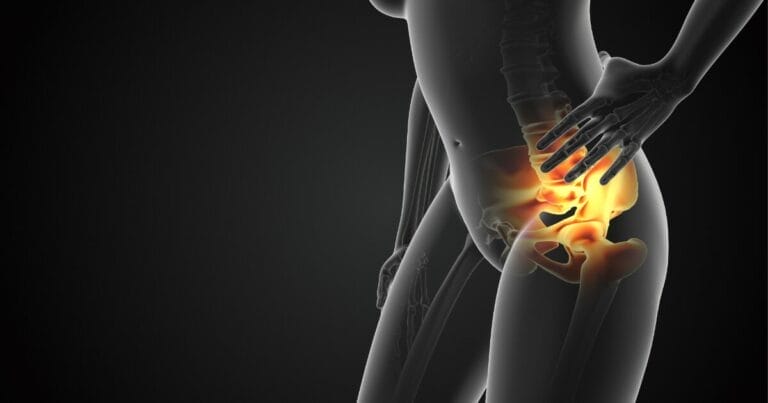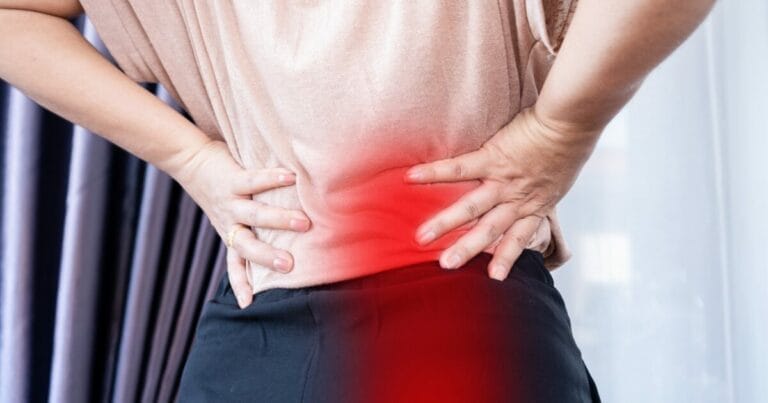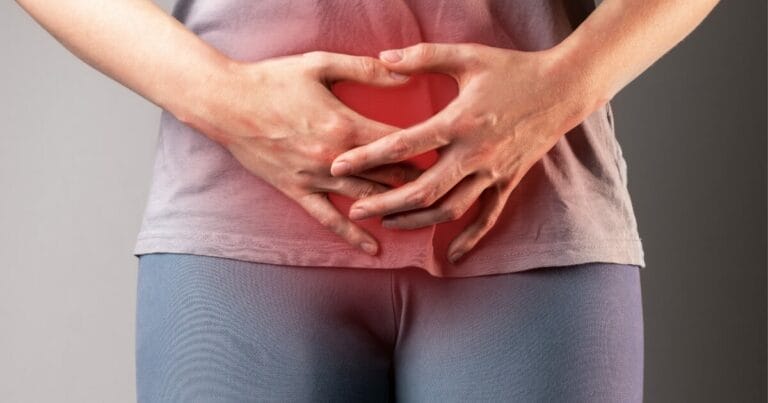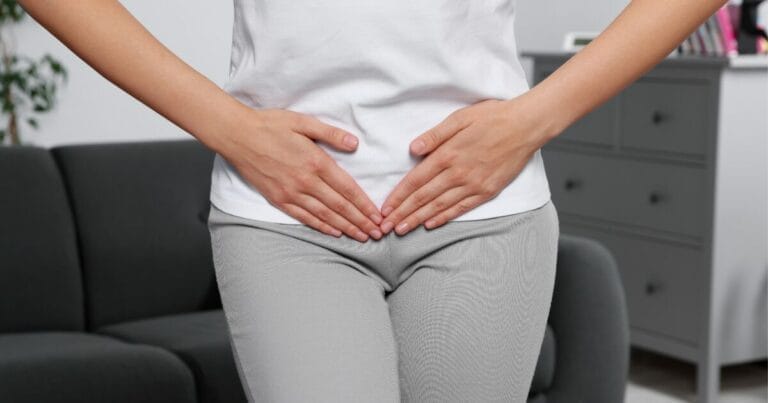Six Natural Ways to Soothe Interstitial Cystitis Symptoms
Interstitial cystitis (IC), also known as painful bladder syndrome, is a long-term condition that can really disrupt someone’s day-to-day life. The cause of IC is hard to pin down, and the symptoms can change a lot from person to person, which makes treating it pretty complicated. While a lot of treatments tend to be medicines,…

Interstitial cystitis (IC), also known as painful bladder syndrome, is a long-term condition that can really disrupt someone’s day-to-day life. The cause of IC is hard to pin down, and the symptoms can change a lot from person to person, which makes treating it pretty complicated. While a lot of treatments tend to be medicines, research is now showing that natural methods can be just as helpful in relieving symptoms.
Let’s dive into six drug-free ways to help manage IC. These suggestions are based on the latest research and insights from healthcare professionals.
Firstly, adjusting what you eat and drink can make a big difference. Some foods and beverages might irritate the bladder more than others, so keeping an eye on your diet can help you figure out what to avoid.
Secondly, managing stress is key. Stress can make symptoms worse, so finding ways to relax, like through meditation or gentle exercise, can offer some relief.
Thirdly, physical therapy can be a treasure trove for IC sufferers. It’s particularly good for easing pelvic pain, which is a common problem for those with IC.
Fourthly, bladder training can help. This involves going to the bathroom at set times, which can help your bladder hold more and reduce the urgency to pee.
Fifthly, some people find solace in using heat pads or taking warm baths, which can help ease the pain and discomfort associated with IC.
Lastly, it’s important to remember that each person’s IC is unique, and what works for one person might not work for another. It’s all about finding the right combination of strategies that work for you.
In conclusion, these natural methods offer hope for those looking to manage their IC symptoms without relying solely on medication. They’re not just about easing symptoms, but also about giving people the tools to take control of their condition. And as we navigate today’s digital world, staying informed and embracing these strategies is more important than ever.
Remember that while these methods can be helpful, it’s crucial to consult with a healthcare provider before trying new treatments. This ensures that each step you take is safe and suitable for your specific situation.
Key Takeaways
Interstitial cystitis, or IC, often called painful bladder syndrome, is a chronic health issue that can significantly interrupt someone’s daily activities. Pinpointing the exact cause of IC is challenging, and symptoms vary widely among individuals, making treatment complex. However, recent studies suggest natural approaches can effectively alleviate symptoms.
Delving into six drug-free strategies may help manage IC based on current research and healthcare advice.
First, paying attention to your diet is crucial. Certain foods and drinks can aggravate the bladder, so monitoring your intake is beneficial in identifying triggers.
Second, stress reduction is imperative. Heightened stress can exacerbate symptoms, thus adopting relaxation techniques like meditation or low-impact exercises can provide relief.
Third, engaging in physical therapy can be invaluable, particularly for alleviating pelvic pain, which is frequently experienced by those with IC.
Fourth, bladder training is beneficial. This technique involves scheduled bathroom visits, potentially increasing bladder capacity and decreasing the urge to urinate frequently.
Fifth, many find relief using heat pads or taking warm baths to lessen the discomfort linked to IC.
Lastly, it’s essential to acknowledge the uniqueness of each individual’s experience with IC, meaning a strategy that benefits one person may not suit another.
In summary, these natural solutions offer hope for managing IC symptoms without solely depending on medications. They empower individuals to take charge of their health in our ever-evolving digital world.
It is crucial to consult with a healthcare professional before attempting new treatments, ensuring each step taken is appropriate and safe for your specific health needs.
Custom Quote: “In the journey to manage IC, natural methods are not just alternate paths but are becoming integral to the roadmap of patient care, offering a sense of empowerment in a condition that is often unpredictable.”
Understanding Interstitial Cystitis
Interstitial cystitis (IC) is a long-term condition that causes ongoing pain and pressure in the bladder area, along with a constant need to urinate. This happens even when there’s no urinary infection or other obvious cause. It’s really important to figure out what makes your symptoms worse, such as certain foods, stress, or hormone changes, because avoiding these triggers can help control the pain and frequent urination.
Figuring out if someone has IC can be tough because it shares symptoms with other bladder issues. Usually, doctors confirm it by ruling out other conditions, and they might use procedures like cystoscopy and hydrodistention. Each person with IC is different, so they need a tailored plan to manage their symptoms, which might include changes to their lifestyle.
Now, if you’re dealing with IC, remember that you’re not alone. Many people struggle with this condition and finding what works for you can provide some relief. It’s all about taking the right steps and adjusting as needed.
In terms of managing IC, there are no one-size-fits-all answers. But keeping track of your symptoms, understanding your personal triggers, and working closely with your healthcare provider can make a big difference. Stay informed, stay hopeful, and keep looking for the strategies that help you feel better.
Diet and Nutrition Strategies
Understanding the importance of diet in managing interstitial cystitis is crucial for patients seeking relief. Starting with an elimination diet can be a helpful way to pinpoint which foods might be causing flare-ups. By cutting out certain foods and gradually adding them back in, you can create a customized diet that reduces bladder irritation.
Additionally, adding probiotics to your diet may help. Probiotics can balance the bacteria in your gut and urinary tract, possibly lowering inflammation and promoting a healthy urogenital system.
Working with a healthcare professional on these dietary changes can play a key role in handling the complexities of interstitial cystitis.
Remember that food and nutrition play a pivotal role in your health. Taking the time to understand and adjust your diet could make a significant difference in your comfort and well-being.
Stress Reduction Techniques
Stress Reduction Techniques for Interstitial Cystitis
Managing interstitial cystitis often involves finding ways to reduce stress, as it can worsen symptoms. Mindfulness meditation and deep breathing are two simple yet effective strategies that can help. By focusing on the present moment and controlling your breath, you can promote relaxation. This not only helps with managing pain but can also lead to a better overall quality of life for those dealing with chronic urological issues.
Why Stress Reduction is Key
Stress can trigger flare-ups in interstitial cystitis, making symptom management more challenging. That’s why incorporating stress reduction techniques into your daily routine is crucial. These practices can help you keep symptoms in check and improve your ability to cope with the discomfort associated with this condition.
Mindfulness Meditation and Deep Breathing: A Closer Look
Mindfulness meditation encourages you to observe your thoughts and feelings without judgment. This practice can lead to a state of calmness and help you react more positively to stress. On the other hand, deep breathing exercises can immediately lower stress levels, as deep, slow breaths signal your body to relax.
The Benefits of These Techniques
Regular use of these techniques can have a noticeable impact on your well-being. People who practice them often report feeling less pain and experiencing a better quality of life. It’s not just about lessening the symptoms; it’s about enhancing your ability to enjoy life despite having a chronic condition.
Starting Your Stress Reduction Journey
If you’re looking to start reducing stress to manage interstitial cystitis, these two techniques can be a great starting point. They are easy to learn and can be practiced almost anywhere. Whether you’re at home or on the go, taking a few minutes to meditate or focus on your breathing can make a significant difference.
Conclusion
Incorporating stress reduction techniques into your life can be a game-changer when dealing with interstitial cystitis. Mindfulness meditation and deep breathing are accessible tools that can lead to lasting benefits for your mental and physical health. Give them a try and see how they can help you navigate the challenges of this condition with greater ease.
Mindfulness Meditation Practices
Mindfulness meditation is a proven way to reduce stress, which can help ease the symptoms of interstitial cystitis, a condition that causes bladder pain and urgency. By focusing the mind and relaxing the body, patients may find relief from the constant discomfort. Adding guided imagery to meditation sessions could further decrease the sensitivity of the bladder by helping patients visualize calming and restorative scenes.
Research shows that programs like Mindfulness-Based Stress Reduction (MBSR), which include relaxation and cognitive behavioral techniques, are beneficial for managing chronic pelvic pain and improving life quality. Regular mindfulness practice can shift a patient’s focus away from stress, lessening the severity of interstitial cystitis symptoms.
In our busy world, it’s essential to find effective ways to manage health issues like interstitial cystitis. Mindfulness offers a practical approach to pain management, and its regular practice could be a game-changer for many. Remember that taking control of your mental state can have a powerful impact on your physical well-being.
If you’re ready to start your journey towards better health through mindfulness, consider exploring MBSR or other similar techniques. It’s a simple, yet powerful way to improve your quality of life.
Custom Quote: ‘Embrace mindfulness as your ally against the trials of interstitial cystitis, and discover a new level of serenity within yourself.’
Deep Breathing Exercises
Deep breathing exercises can help ease the discomfort of interstitial cystitis by promoting relaxation and lessening stress-related symptoms. Controlling your breathing can lead to a relaxation response that slows down your heart rate, lowers blood pressure, eases muscle tension, and reduces the level of stress hormones in your body.
Here’s how to practice deep breathing effectively:
- Choose a quiet and comfortable place to sit or recline.
- Breathe in slowly through your nose, making sure your stomach expands fully.
- Pause for a couple of seconds with the breath held in.
- Breathe out slowly through your mouth, consciously relaxing more with each breath.
By regularly performing these exercises, you can naturally manage the discomfort associated with interstitial cystitis without relying on medication.
Now, let’s break down these steps further:
Firstly, finding a spot where you won’t be disturbed is key to focusing on your breathing. This could be as simple as a corner of your bedroom or a spot in your garden.
Secondly, when you breathe in, imagine filling your body with calmness, and as you hold that breath, think of it as a pause in your day to reset.
Thirdly, as you exhale, visualize stress leaving your body. It’s a moment of release that can bring immediate relief.
Lastly, incorporating these exercises into your daily life doesn’t have to be complicated. Start with a few minutes each day and increase as you feel comfortable.
Remember that deep breathing is a tool you always carry with you, ready to provide solace in moments of discomfort.
Pelvic Floor Therapy Benefits
Pelvic floor therapy has become a key approach in addressing interstitial cystitis (IC), providing relief without medication. It works by reducing tension in the pelvic muscles, which can help ease the ongoing pain that IC causes and enhance a patient’s daily life. This therapy also helps with bladder control and can lead to fewer painful episodes, making it an important part of treating IC.
Firstly, for those struggling with IC, the benefits of pelvic floor therapy are clear. It’s a non-drug option that focuses on muscle relaxation to provide comfort. This is crucial for those seeking alternatives to medication.
Secondly, improved bladder control can be a game-changer for many, significantly impacting their well-being.
Easing Pelvic Muscle Tension
Pelvic Floor Therapy for Interstitial Cystitis Relief
Many people with interstitial cystitis find relief through pelvic floor therapy, which focuses on relaxing and strengthening the pelvic muscles. This therapy is effective because it reduces the muscle tension that often causes discomfort in this condition.
Here’s what pelvic floor therapy might involve:
- Hands-On Techniques: Physical therapists use hands-on techniques to work out muscle knots and ease tension.
- Biofeedback Training: Patients learn to control their pelvic muscles with the help of biofeedback, leading to better muscle relaxation.
- Muscle Relaxant Medications: When prescribed carefully, these medications can help decrease muscle spasms and pain.
- Heat Application: Warmth relaxes tight muscles and improves blood circulation, aiding in relaxation and recovery.
These strategies, based on professional medical knowledge, provide a comprehensive approach to handling interstitial cystitis.
If you’re seeking effective ways to manage pelvic muscle tension, pelvic floor therapy is worth exploring. It’s essential to understand that reducing tension in these muscles can greatly improve your comfort if you’re dealing with interstitial cystitis.
Remember that every individual’s experience with interstitial cystitis is unique, and it’s important to consult with a healthcare professional to determine the best treatment plan for your specific needs.
Enhancing Bladder Control
Building on the foundation of easing pelvic muscle tension, pelvic floor therapy also offers significant benefits in enhancing bladder control for those suffering from interstitial cystitis. This therapy targets the musculature of the pelvic floor, which is instrumental in modulating urinary function. By strengthening and relaxing the pelvic muscles, patients can gain better control over bladder contractions, potentially reducing the frequency and urgency of urination that characterizes interstitial cystitis.
Maintaining a bladder diary can be an invaluable tool in this therapeutic process, allowing for the monitoring of urinary patterns and the effectiveness of pelvic floor exercises.
Additionally, acupuncture has shown promise in the management of interstitial cystitis symptoms. Research on acupuncture effectiveness indicates that it may help modulate pain and bladder function, offering a complementary strategy to pelvic floor therapy in the pursuit of symptom relief.
Reducing Painful Flare-Ups
Reducing the Frequency and Intensity of Painful Flare-Ups with Pelvic Floor Therapy
Pelvic floor therapy isn’t just about strengthening muscles; it’s a key element in managing the pain and discomfort that comes with interstitial cystitis. This therapy offers a range of benefits for those affected:
- Better Muscle Function: Custom exercises aim to improve control over pelvic floor muscles, which can help ease pain.
- Less Muscle Tension: Hands-on methods can reduce tightness in the muscles, which often triggers flare-ups.
- Benefits of Heat: Applying warmth to the area can calm muscles and help with symptom relief.
- Acupuncture as an Addition: Acupuncture can sometimes lessen pelvic pain by influencing the nervous system.
When a trained professional administers pelvic floor therapy, they use proven methods to tackle the complex symptoms of interstitial cystitis. This helps people manage their pain better and enhances their overall quality of life.
In the current healthcare climate, it is crucial to understand the significance of holistic approaches to managing chronic conditions. Pelvic floor therapy represents a vital component of such strategies, offering relief and hope to many who suffer from interstitial cystitis. With a focus on practical treatment options, this therapy stands as a testament to the advancements in patient care and pain management.
Remember that a skilled practitioner is your best resource for this kind of therapy. They’ll guide you through the process and provide the support you need to manage your condition effectively. If you’re looking for a way to ease your interstitial cystitis symptoms, pelvic floor therapy could be the answer you need.
Bladder Training Methods
Bladder training is a key technique for dealing with the pain and discomfort of interstitial cystitis. By teaching patients to extend the time between restroom breaks, it helps improve bladder control and lessen symptoms. The process is simple: you gradually wait longer before urinating, following a set schedule. This trains your bladder to hold more, which can reduce the frequent and urgent need to go that comes with interstitial cystitis.
Starting with this method, patients work on holding their urine a bit longer than usual, challenging the urge to go right away. This practice stretches the bladder and strengthens the detrusor muscles, which are responsible for emptying the bladder. As a result, patients often experience better bladder function and symptom relief.
It’s important to understand why this strategy is effective. By delaying urination, you’re not just stretching the bladder physically, but you’re also training it on a neurological level. This means your bladder learns to cope with more urine before signaling that it’s time to go. Remember, it’s not about holding it in until you’re in pain, but rather about gradual improvement.
Herbal Supplement Efficacy
Herbal supplements have become a topic of interest for those dealing with the discomfort of interstitial cystitis, but it’s critical to evaluate their effectiveness based on scientific research. Let’s break down the key considerations:
Firstly, the quality and consistency of herbal supplements can be uncertain since they don’t face the same stringent oversight as pharmaceutical drugs from bodies like the FDA.
Secondly, it is essential to rely on well-designed clinical studies to confirm whether these supplements can truly ease the symptoms related to interstitial cystitis.
Additionally, individuals should be alert to the risk of allergic reactions due to the diverse plant ingredients found in these products.
Moreover, it’s important to consult healthcare professionals about potential interactions between herbal supplements and any prescribed medications to ensure safety and maintain the efficacy of treatments.
Pelvic Floor Exercise Routines
Pelvic floor exercise routines, also known as Kegel exercises, serve as an effective way to potentially ease the discomfort linked with interstitial cystitis by fortifying the muscles that underpin bladder function. By performing these exercises, individuals can bolster muscle coordination, potentially leading to better bladder control and lessened pelvic pain. Different Kegel exercise variations are designed to focus on various parts of the pelvic floor, some aiming for lasting strength and others for quick contractions that mirror our body’s reflex to sudden actions like coughing or laughing.
To begin a journey toward improved pelvic health, it is essential to engage in systematic pelvic floor muscle training under the guidance of a healthcare professional. This can help with the neuromuscular adjustments needed for managing symptoms. It’s important for patients to follow a tailored exercise plan to make sure they’re effectively working the right muscles.
When it comes to strengthening your pelvic floor, remember that it’s not about following a one-size-fits-all approach. Each individual’s body is different, and a healthcare professional can help design a routine that’s just right for you. Embrace the process of getting to know your body better and unlock the benefits of a robust pelvic floor.
In the realm of personal health, it’s crucial to approach exercises with clear goals and guidance. Say goodbye to guesswork and embrace a structured regimen that enhances your well-being. With dedication and the right guidance, you can discover the solace of improved symptoms and enhanced muscle function.
Remember: Consistency is key in pelvic floor training. Embark on this journey with patience, and over time, you may find significant relief from the symptoms that once disrupted your day-to-day life.
Frequently Asked Questions
Can Interstitial Cystitis Symptoms Mimic Other Conditions, and How Is It Differentiated From Them?
Interstitial cystitis often presents symptoms similar to other urinary issues, which can lead to confusion in diagnosis. To tackle this, healthcare professionals use specific tests that help them tell it apart from other conditions. They rely on established guidelines to pinpoint the signs that are characteristic of this particular bladder problem.
When it comes to differentiating interstitial cystitis from other conditions with like symptoms, healthcare providers delve into the patient’s medical history and symptoms and may also conduct tests like urine analysis and cystoscopy. By doing so, they can uncover evidence that points to interstitial cystitis.
It’s crucial to understand that while other urinary conditions can cause discomfort and frequent urination, interstitial cystitis has a distinct combination of symptoms, such as bladder pain that gets worse as the bladder fills. This helps doctors to distinguish it and provide appropriate treatment.
Are There Any Long-Term Complications Associated With Interstitial Cystitis That I Should Be Aware Of?
Interstitial cystitis often leads to ongoing pain, which can greatly disrupt someone’s daily life. Dealing with this condition can also have a deep psychological impact. For this reason, it’s crucial to have a team of health professionals to support and treat the patient effectively.
Chronic pain from this condition can make it hard to enjoy life and do everyday activities. It’s important to understand that managing interstitial cystitis usually involves different specialists, such as urologists, pain management doctors, and mental health professionals. Working together, they aim to provide relief and improve the patient’s well-being.
How Does Interstitial Cystitis Affect Pregnancy and Childbirth, and What Precautions Should Be Taken?
Pregnancy and childbirth can become more challenging with interstitial cystitis. To manage this condition, it’s important to create a hydration plan that meets the mother’s needs without causing discomfort. Additionally, childbirth should be planned with care, considering the mother’s comfort and the baby’s safety. An obstetrician should work closely with a urologist to ensure the best outcomes.
Simplified and Rewritten Text:
Dealing with Interstitial Cystitis During Pregnancy and Childbirth
If you’re pregnant and have interstitial cystitis, you might be worried about how it will affect your pregnancy and delivery. It’s crucial to know that with the right care, you can still have a healthy pregnancy and a safe childbirth experience.
Firstly, it’s all about staying hydrated in a way that doesn’t aggravate your symptoms. This might mean drinking water at specific times or in certain amounts. Your doctor can help you figure out the best approach.
Secondly, when planning for delivery, comfort is key. You and your healthcare team should discuss the best way to manage pain and avoid stress on your bladder. This could involve a customized birth plan that takes your condition into account.
Remember that combining the expertise of your obstetrician and a urologist can make a big difference. They can work together to monitor your health and adjust your care as needed throughout your pregnancy and during childbirth.
In conclusion, while interstitial cystitis can add a layer of complexity to your pregnancy and delivery, with proper planning and medical support, you can look forward to welcoming your little one into the world with joy.
Is There a Genetic Predisposition to Interstitial Cystitis, and Should Family Members Be Concerned About Developing It?
Recent studies on interstitial cystitis, a complex bladder condition, hint at the possibility of genetic factors playing a role, although clear hereditary patterns have not been confirmed. If you have a relative with this condition, it’s wise to stay informed without worrying too much.
Here’s the lowdown: While scientists have noticed that interstitial cystitis sometimes occurs within families, they haven’t pinpointed specific genetic markers. This means that even if you’re related to someone with the condition, it doesn’t guarantee you’ll develop it.
So, what should you do? Be aware, but not anxious. Keeping an eye on symptoms and maintaining a dialogue with your healthcare provider is a proactive approach. And remember, knowledge is power—in this case, the power to manage your health effectively.
Can Certain Medications Exacerbate Interstitial Cystitis Symptoms, and What Alternatives Are Available for Common Medications?
Certain medications can indeed worsen the symptoms of interstitial cystitis. This makes it essential to review your medications thoroughly and consider changes to your diet. For those looking for alternatives to drugs that irritate the bladder, medical advice is crucial. You might discover less aggravating options that can help manage your condition without increasing discomfort.
Firstly, it is important to understand which medications may be causing trouble. Some drugs, especially those with ingredients known to irritate the bladder, should be used with caution. If you’re feeling overwhelmed by the prospect of adjusting your medication, remember that healthcare providers are there to help you navigate these decisions.
Secondly, embracing alternative treatments may provide solace. These treatments could range from physical therapy to natural supplements, each offering its own benefits without the harsh side effects on your bladder.







